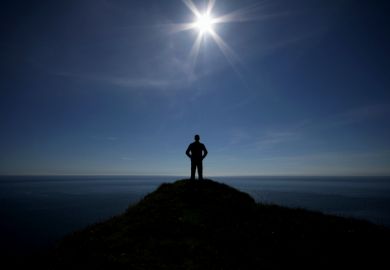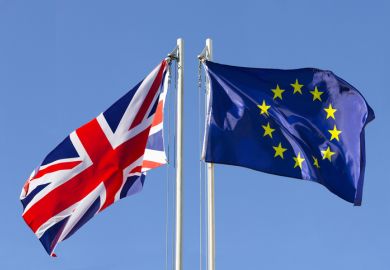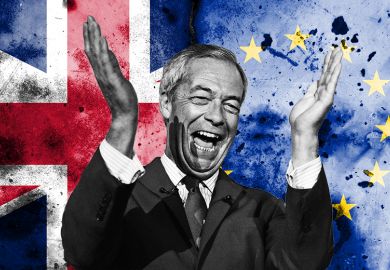It is often said that we need strong leaders – people with oodles of charisma, a compelling explanation for our woes and a vision of an alternative that makes us feel better. In the past week, we have been gifted the results of such "strong leadership" in the form of a vote to leave the European Union. It tells us much about leadership and how it can be a force for harm at least as much as it is a force for progress.
Unscrupulous leaders understand human frailties only too well, and exploit them ruthlessly. People prefer certainty over uncertainty and simplicity over complexity. Dark-side leaders fashion simplistic narratives that purport to fix all our problems: a magic potion that can heal the sick and revive the dead. This was once the appeal of Marxism. All evil flowed from the profit motive, but salvation could be found in the abolition of capitalism, a universal analgesic. Of course, Nazism had the same approach. Every difficulty was caused by the Jews, and the final solution lay in their extermination.
Between them, Boris Johnson, Michael Gove and Nigel Farage re-enact these approaches quite precisely. Whether the issue is housing in Bradford, steel plant closures in Wales or congestion on the M25 the problem is the EU (or, more exactly, the foreigners it has allowed inside our borders) and the solution is the same – leave. Cavalier with the facts but faithful to mythology, such leaders are often wrong but never seem to be in doubt.
They play insistently on people’s fears, like an orchestra that limits its repertoire to only one note. Fear silences reason, paralyses our conscience and dims our sense of empathy. Nigel Farage has referred to Muslims as a "fifth column" living in the UK. Any difference from the mainstream is feared, hated, marginalised and, ideally, eliminated. Like Donald Trump, Farage constructs fearsome stereotypes of the Muslim community and others. Its members are no longer individual people, with as many differences between themselves as can be found between whites in any London suburb. Rather, they constitute some kind of "type", probably wandering around with bombs concealed in their knapsacks. It is ironic that the Leave campaign succeeded in painting the Remain side as "Project Fear". In comparison with the suggestion of economic woe, the prospect of invasion from European, Turkish and Muslim hordes, taking our jobs and houses while using their downtime to rape our women, is "Project Terror".
Dark-side leaders eventually discover that simple solutions don’t work. Moreover, they produce unintended consequences – such as a fall in the value of the pound, abandoned investment decisions and the relocation of businesses elsewhere. What to do? But by now they have begun to believe their own publicity (and their own arguments), exult in their imagined indispensability and are rarely in a hurry to leave the stage. Power is seductive. So they ratchet up their rhetoric, rather than admit error, concede defeat and start afresh.
They also have suspicious followers eager to hold them to account. These see any attempt at compromise as treachery. Farage is already making noises about what he "worries" may be backsliding by other Brexit campaigners. Johnson and others may already have discovered that it is easier to arouse fear than it is to contain it. Fears become legitimised when they are shared, spoken of publicly, repeated in the media, endorsed by politicians and validated in a referendum. They don’t respond meekly to the soothing voice of the master that created them. Rather, they demand to be fed. The fantastic promises of the Leave campaign are already being exposed as lies. Unfortunately, it doesn’t follow that this will diminish the feverish suspicion of foreigners that drove many people to vote Leave. As each scapegoat is dealt with, another must take its place. It may be that first they came for the Muslims, and next they come for the Poles. Followed by?
Clearly, an alternative is needed. Right now this is in short supply. When Jeremy Corbyn campaigned last year for the leadership of the Labour Party he was fortunate in his choice of opponents. He may not be so lucky again. Last time out, he at least offered a crusading sense of certainty, albeit one time warped in the 1970s. His opponents offered nothing. But the 48 per cent of people who voted Remain in this referendum mostly do not want a re-enactment of the 1970s any more than they wish to leave the EU. Their worries are different from those stoked by the Leave campaign and include the fear of living in a country diminished by bigotry, cut off from Europe and led by unscrupulous demagogues, always in hock to the louder demagogue peering over their shoulder. Their desires are also different – to live in a country that values diversity rather than cherishes sameness, and that wants to work in partnership and cooperation with others to address our real problems, none of which will be solved by leaving the EU.
For now, anxiety is in the ascendant. Dark-side leaders are having their day in the sun, although some already seem blindsided by the unfamiliar sensation of daylight. Fortunately, those fired with different beliefs don’t belong to only one party. Liberal Tories are equally appalled by the mess that we are now in. In the months ahead, these alternative voices must articulate a different prospectus to the hopelessness that fuelled the fears of many, and the false promises that can only intensify them. It is time for a different kind of leadership.
Dennis Tourish is professor of leadership and organisation studies at Royal Holloway, University of London. He is the author of The Dark Side of Transformational Leadership (Routledge, 2013).
Write for us
If you are interested in blogging for us, please email chris.parr@tesglobal.com
Register to continue
Why register?
- Registration is free and only takes a moment
- Once registered, you can read 3 articles a month
- Sign up for our newsletter
Subscribe
Or subscribe for unlimited access to:
- Unlimited access to news, views, insights & reviews
- Digital editions
- Digital access to THE’s university and college rankings analysis
Already registered or a current subscriber?





